
Joana
Vera, mãe solteira com dois filhos pequenos, é obrigada a ter dois trabalhos para sobreviver depois do pai dos seus filhos ter desaparecido em parte incerta. De dia é caixa num supermercado e à noite trabalha numa boîtede striptease, procurando assim não só criar os filhos como pagar as dívidas que o seu ex-companheiro lhe deixou. Assediada em ambos os trabalhos, um dia reage violentamente quando um cliente da boîte é mais atrevido, sendo condenada em tribunal a cumprir serviço comunitário num lar de idosos, onde a sua irreverência e juventude irá chocar com a autoritarismo e desumanidade da diretora. Para os idosos que vivem no lar, Vera é uma lufada de ar fresco que pouco e pouco irá mudar as suas vidas, transformando-se na verdadeira fada do lar...

One day, an old water pipe caused a ceiling leak. On this ceiling, toxic mushrooms of the order Polypo- rales would grow. Sitting on the toilet, the lady of this house looks up and observes that magical and mys- terious fungus, which is not an animal, nor a plant. The mushroom is the future, she thought.

Clarinda Marques
O LOBO SOLITÁRIO é o título da segunda curta-metragem de Filipe Melo, que se encontra já em fase de finalização. Revelamos hoje o título, cartaz e elenco do filme para vos abrir o apetite para o sucessor de SLEEPWALK.

Richterin Fonseca

Richterin Fonseca

Vizinha 1
Fernando Pessoa, um dos maiores escritores da língua portuguesa, estabeleceu um gigantesco universo paralelo criando uma série de heterônimos para sobreviver à solidão de sua genialidade. José Saramago, Prêmio Nobel de Literatura de 1998, escreveu a história que vemos aqui, em que o heterônimo Ricardo Reis volta a Portugal após um exílio de 16 anos no Brasil. 1936 é o ano de todos os perigos: do fascismo de Mussolini, do nazismo de Hitler, da Guerra Civil Espanhola e do Estado Novo de Salazar, em Portugal. Fernando Pessoa, o criador, encontra Ricardo Reis, a criatura. Duas mulheres, Lídia e Marcenda, são as paixões carnais e impossíveis de Reis. E aqui, essa jornada tem como tema o realismo fantástico. Adaptação do romance homônimo do escritor português José Saramago.

Eduarda
"O Quadro" is a short film written and directed by Lucas Manarte. The film tells the story of Eduarda and João, a couple in debt.

Richterin Fonseca
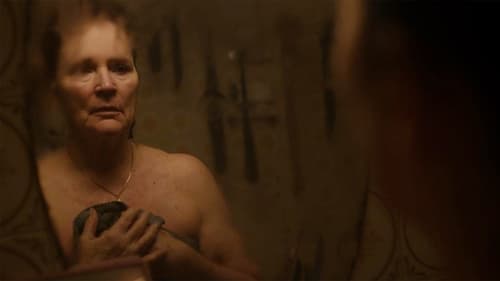
Maria passa o dia a cozer e a limpar, enquanto à noite trabalha como prostituta nas ruas do Porto. José, seu amante e mais fiel cliente, não a consegue ajudar a escapar duma vida dura, e nem dar a esta mulher o que ela sempre mais desejou. Num íntimo retrato, MARIA revela sem medo a crueza do amor e do envelhecimento.

Richterin Fonseca
Lisbon Attorney and former DA Eduardo Silva never got over the death, two years ago, of his wife valentine in a car crash. When he and his gypsy assistant Marcia Amaya hear crime baron Tiago Zarco is arrested having been found over the corpse of the massive pharmaceutical fraud case, she's surprised like the DA that Eduardo offers to defend Zarco, who accepts while keeping his uncooperative right hand-lawyer on, even if that solves their law firm's dire financial state. Silva seems prepared to risk his lawyer license for vengeance on the monster who had an affair with Valentina, yet refuses to look away from indications that Zarco hasn't committed or ordered the murder, but sets a risky trap for those fiends, which proves extremely difficult and dangerous.

Richterin Fonseca
Two years after consorting with the wrong people cost him his job as public prosecutor, Eduardo Silva is a measly defense attorney, who works from his hotel room. Loosing a bit from her fellow-angler uncle, he gives a shot as unpaid apprentice to freshly-graduated gypsy Marcia Amaya, whom nobody would consider hiring so far, but is soon offered crossing to the office of Silva's successor as prosecutor. Their first client is common-as-muck Joana Soares, accused of murdering her beached-up husband after a public fight, without an alibi, claiming a blackout. Eduardo is countered while working out, with help from Marcia's and Joana's families, how the affair actually relates to illegal trade in medicine, with twists including the involvement of a crime lord.
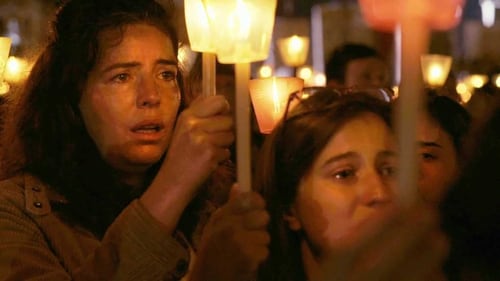
Isaura
A viagem de 11 mulheres enquanto vão em peregrinação de Bragança a Fátima.
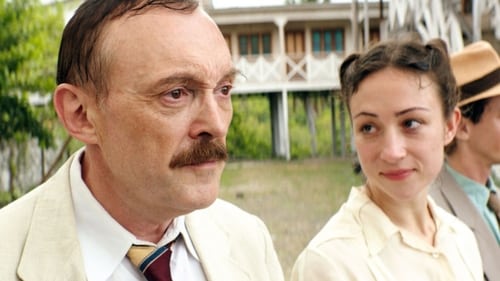
Gabriela Mistral
Em 1936, fugindo do nazismo na Europa, o ilustre escritor austríaco de origem judaica Stefan Zweig desembarca no Novo Mundo, percorrendo Rio de Janeiro, Bahia, Buenos Aires, Nova York e Petrópolis. Apaixonado pelo Brasil, inicia a escrita de um novo livro, tendo a nova terra como tema, e é na cidade imperial que decide se instalar em 1941. Porém, atormentado pelo crescimento da intolerância, da barbárie e do autoritarismo na Europa, e sentindo-se impotente em não poder ajudar seus conterrâneos a escapar do horror nazista, Zweig sucumbe aos fantasmas do exílio.

Senhora da Estação
Fábio e Miá enfrentam a primeira crise conjugal. Ela pede o divórcio, mas acaba sendo convencida a embarcar com ele para Portugal para consolar o avô, que acabou de ficar viúvo. Lá, Fábio reencontra sua namorada de infância, Ritinha, que agora é noiva de Álvaro, seu rival desde menino. Tentando esconder de todos que estão à beira da separação, Fábio e Miá vivem situações hilárias e inesperadas que acirram ainda mais a crise no casamento.
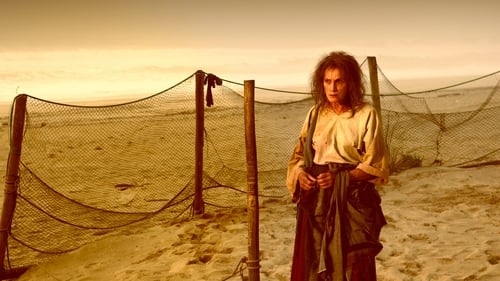
1920s. Vitalino, a small farmer from São Vicente sees his father die of the epidemic which decimated the country. Some years later, of all the brothers, Vitalino is the strongest and takes his father’s place in the house. But the village is too small for his aspirations and he decides to head to Brazil, leaving his sisters in charge of the household. In parallel with Vitalino’s story, If I Were a Thief… I’d Steal portrays the world of Paulo Rocha rummaging through his films and ghosts over the years.
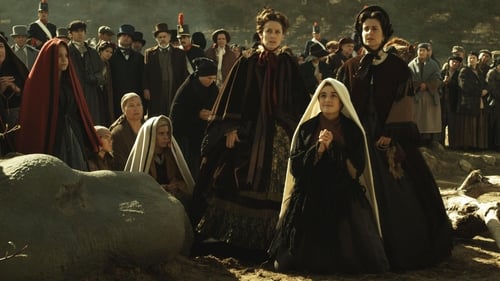
Pani Milhet
Entre Fevereiro e Julho de 1858, na gruta Massabielle, a Virgem Maria apareceu 18 vezes para Bernadette Soubirous, uma pobre garota de Lourdes. Uma verdadeira revolução no coração do Segundo Império que abalou a ordem estabelecida com uma mensagem universal de amor e paz.
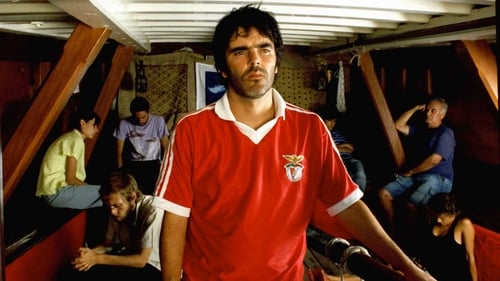
Luísa
Manuel bids farewell to his routine and boards a 15th century vessel under pirate law. Treason on board triggers a series of terrible events our protagonist overcomes while keeping his moral principles intact.
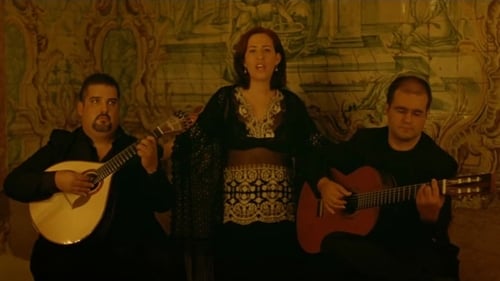
Sacristá
Julie de Hauranne, uma jovem actriz francesa que fala a língua da sua mãe, o português, mas que nunca esteve em Lisboa, chega pela primeira vez a esta cidade, onde vai rodar um filme baseado nas Lettres portugaises de Guilleragues. Rapidamente, deixa-se fascinar por uma freira que vai rezar, todas as noites, para a capela da Nossa Senhora do Monte, na colina da Graça. No decurso da sua estadia, a jovem trava uma série de conhecimentos, que, à imagem da sua existência anterior, parecem efémeros e inconsequentes. Mas, após uma noite em que, finalmente, fala com a freira, ela consegue entrever o sentido da vida e do seu destino.

Rosa's Mother-in-Law
In oPorto there is a club, Imperatriz, where everything is permitted. A moment in which all intersect in the dark night.

Adelaide
Lúcia is misbegotten, unloved and the eternal widow of her own father. A cry of rage in bodily form, she is mad, maltreated and humbled. She wears mourning in remembrance of her mothers crime and betrayal, and gives vent to her inconsolable pain to make sure theres no rest or respite for the killers of her father. She lives in hope of her brothers return so she can fulfil her promise of avenging her fathers blood.

Pilar
Ele e ela não se conhecem. Algures, numa área de serviço da auto-estrada Lisboa – Porto, ele pára para descansar. Ela também lá está e parece tão à deriva quanto ele: é um encontro fortuito que talvez não tenha nada de fortuito. Quase sem palavras, partem os dois no carro dele. Sucedem-se as áreas de serviço, os motéis, as conversas e os silêncios, as revelações e os mistérios. Ele e ela desenham o mapa de uma aventura interior cujo destino ambos desconhecem. Em todo o caso, ela espera que ele a conduza a um lugar primordial, quase mítico: a casa da avó. Na sua solidão, cada um deles pode, pura e simplesmente, perder-se… ou, talvez, encontrar o outro.

Luísa
After finishing his MA in Anthropology, Hugo spends his days giving his brain a rest from the endless reading of texts by unknown authors. His only company is Luisa, the cleaning lady, with whom he plays cat and mouse. To escape the sleep of reason – which creates monsters -, Hugo exercises his lyrical vein by writing, with his friend Manuel, songs about their neighbourhood. The quiet dilettantism of our protagonist is shaken by Catarina, a young and beautiful translator who’s starting her professional life as a freelancer. Hugo is hooked and wavers. High above, a kestrel falcon hovers. It’s not the only bird of prey that can do it.

Grandmother Portuguese
Luxembourg's submission for the Academy Award for Best Foreign Language Film in 2003

the third Comite Lady
Esta é a história de uma mulher que vive em Lisboa, no cotovelo da Rua Washington, e que acredita mesmo que é a Presidente dos Estados Unidos da América.

Dona da Pensão
Portugal, finais dos anos 60. Tomás Palma Bravo (Rogério Samora), o Delfim, o Infante, é o herdeiro de um mundo em decomposição. É ele o dono da Lagoa, da Gafeira, de Maria das Mercês (Alexandra Lencastre), sua mulher infecunda, de Domingos, seu criado preto e maneta, de um mastim e de um “Jaguar E”, que o leva da Gafeira a Lisboa e às putas. Um caçador, detective e narrador, que todos os anos volta à Lagoa para caçar patos-reais, descobre, um ano depois, que Domingos apareceu morto na cama do casal Palma Bravo e que Maria das Mercês apareceu a boiar na Lagoa. Quanto a Tomás Palma Bravo e ao mastim, dizem-lhe que desapareceram sem deixar rasto.

After having been in jail, Manuel becomes a bullfighter following dangerously his father's steps.

Mrs. Casimira
O filme se passa num escaldante dia de verão. Paul, o narrador, tem um encontro marcado com um convidado que não é outro senão o fantasma do grande escritor Fernando Pessoa. Paul chega em Lisboa ao meio-dia e se dá conta de que os fantasmas só aparecem à meia-noite. Entre meio dia e meia noite numa série de casualidades e ao reconstituir seu passado, Paul encontra diversos personagens, uma curiosa mistura de pessoas, vivas e mortas, cujos caminhos se cruzam num mesmo momento de um tempo descontínuo.

Dalila's mother
A história de uma mulher em desespero de vida, que é agredida muito violentamente pelo marido e começa uma tentativa de escape, realizando uma mudança radical de imagem. A partir desta mudança, a mulher continua a querer fugir cada vez mais do marido e da sua mãe chantagista e o seu desejo de libertação culmina com a morte do marido.

Lúcia is an independent woman who lives alone in Lisbon. Her father commits suicide leaving her a message on phone recorder, revealing a letter he wrote. However Lúcia can't find it in her father's house. On that visit she ends up meeting with her mother, a known political activist with whom she has a distant and tense relationship. In hope of finding the letter, Lúcia leaves to the farm where she grew up, on an isolated location. There she reencounters Álvaro, an old childhood companion, who shares a little life time he has left between roses and the piano, and the guardian angel that follows and protects her through nocturnal wanderings.

D. Clotilde
Ronaldo is Brazilian, from good families and has a problem. His left hand is nailed to his father's table. The reason: Ronaldo has been abusing cocaine which has led him to accumulate debt.
Their executioners did not forgive the fact that they had to travel once more, and again in vain, to Ronaldo's parents' cottage where he has been hiding.
After confronting some characters (all of them seem sinister in Ronaldo's distorted gaze), the Brazilian manages to solve his problems, as if from a dream.

This short film is based upon a book of tales "Exemplary Crimes" by Max Aub who, in his turn, was inspired by real testimonies that describe crimes straightforwardly. The Testimonies are individual confessions by different persons that have nothing in common but the fact that all committed murder.

Antonia
At the end of the seventeenth century, in Naples, still dominated by the Spaniards, a young pupil, Balthasar,is castrated to preserve the purity and beauty of his voice. The Duchess dies and her son, the Duke of Arcos, takes charge of the inheritance, which includes Balthasar. With the entrance of Maria Loffredo, former lover of the Duke, a triangle is established that unchains tragic consequences to the allegedly callous life of Balthasar.

Short film.

Maria
Neglected by his parents, a portly teenager finds refuge with a gang of young thugs in Lisbon.

Two girls meet on a train: Prune is looking for her father whom she has not seen since she was a little girl, Marina is looking for the mother she has never had. Prune learns that her father took his life and then she accidentally dies by drowning. Marina decides to assume her identity and begins a correspondence with Prune's mother.

Liberdade
Twenty years ago, Henrique left Portugal for the peaceful Netherlands. A colonial war veteran, he desperately wanted to get away from his country which still defended a doomed African empire and from his traditional, landowning family. He’s back now. Everything is different. «Europe» knocked on the door and sprawled itself fast. Even the South had to face wrenching changes. And Henrique himself will have to face many events. Love affairs and dangerous threats. And the chalenge of his future.

Singer
Michèle is the new French consul in a South American country. She quickly discovers that the government is, in fact, a dictatorship. Moreover, her seventeen-year-old daughter is involved in the revolution against the regime.

O fascinante romance de António Tabucchi na visão de Fernando Lopes, que criou uma admirável fábula necrófila em tom de thriller policial, com Claude Brasseur Em Lisboa num prédio da zona ribeirinha um homem é abatido a tiro. Spino, patologista da Morgue de Lisboa, reconhece o cadáver como sendo ele próprio há trinta anos atrás. Encontra a fotografia de uma bela mulher nua e decide ele próprio fazer o seu inquérito. Percorre todos os passos do falecido até ao momento da morte dele, que é afinal a sua.

D. Zezinha
Um filme de Margarida Gil sobre o regresso à terra de um homem preso por ter sido incendiário. Uma estreia em televisão. Mário Viegas e Zita Duarte nos seus últimos papéis. A intrpertação de Mário Viegas é considerada antológica no seu papel de bombeiro "Barriga d´água", personagem marginal numa terra de incêndios, terra de fogos e amores violentos. Margarida Gil assinou em 1993 um filme sobre regressos e partidas, encontros e desencontros no país interior. Filmado na Serra da Estrela, um local permanentemente vítima de incêndios. Uma crónica onde se cruzam histórias de amor antigas e novas, velhos crimes e novas formas de corrupção. No fundo, é um olhar sobre a vida e as suas perplexidades, acasos e choque de interesses. Destaque para a música de João Gil e Artur Costa, bem como para o tema cantado por Teresa Salgueiro.
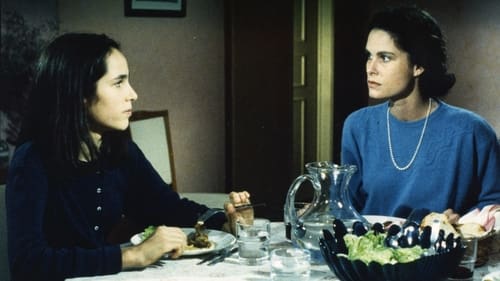
Clara
Redheaded twins Armando and Beatriz always dreamed of being firefighters but during a rainy, uneventful winter they find themselves spending less time putting out infernos than they do helping neighbors who’ve locked themselves out of their apartments. This is how Armando meets a pretty young woman with whom he begins a tentative courtship. But soon a rift grows between the siblings and, spurred by Armando’s exaggerated stories about his nascent relationship, Beatriz begins experiencing aural hallucinations that can only be remedied through music and, finally, the love of a stranger. Pinto made this impassioned fairy tale as part of a series of films about the four elements. - FilmLinc

A teen girl is wrongfully suspected for a crime. A former cop helps her to proof her innocence. There's only one problem : her behavior brings the two of them more than once in trouble.

TV-movie based on a play by Miguel Ángel Asturias.

Godmother
The story of a child who faces the emptiness that surrounds the figure of his parents, disappeared in Africa.

Comparsa (uncredited)
A fanciful biopic of legendary conductor Arturo Toscanini as a very young man.

Museum Employee
Irene, agente de uma companhia de seguros, é encarregada de investigar o desaparecimento de um velho bibliotecário, numa cidade de província. No decurso das suas averiguações, trava conhecimento com Ricardo, professor de história, que conhecia a vítima e se interessa pelas tradições lendárias da região. Assim, Irene tem conhecimento do antiquíssimo castelo medieval - cuja entrada secreta se abre, misteriosamente, na noite de Natal, durante as 12 badaladas da meia-noite.

Maria Madalena
In a unique approach to what amounts to four pseudo-morality plays, director Monique Rutler has a street entertainer with hand puppets summarize the characters and idea of each story. The first sketch is about a young man who shines shoes for a living, and tries to keep up a relationship with two women while convincing each she is his only true love. The next story is about a man who beats up his wife when he is drunk, and sells furs for a living. One day, as she is riding in the back of his truck with the furs, he hits a bad patch and she and some furs fall out. The question is, will the woman be enterprising and leave the jerk - or not? The third tale concerns a woman looking into how much control a prostitute has over her clients, and to really find out, she becomes a prostitute herself for awhile - leading to some quite unexpected situations. The last segment handles the uglier side of the life styles of the rich and famous.

Princesa Camila / Uma Fada
In the time of King Leonardo, a war and the plague that accompanied it depopulated Traslândia. Ignoring these tragic events, Queen Isménia, Princess Camila and lady-in-waiting Narcisa, coming from a distant kingdom, arrive in Traslândia, when the war approaches the end.

A woman translates the front page of H.P. Lovecraft's book “The Silver Key”. Her husband, a journalist, listens. The book describes the conflicts between the real and the imaginary, and tells how Randolph Carter, the film's character, leaves everyday life in search of his childhood dreams.

An adaptation of two short stories by Passos Coelho, essentially shot in a valley that is a territory threatened by floods, the film is a cinematographic chronicle of the rural worker in the area of Montemor-o-Velho.








































